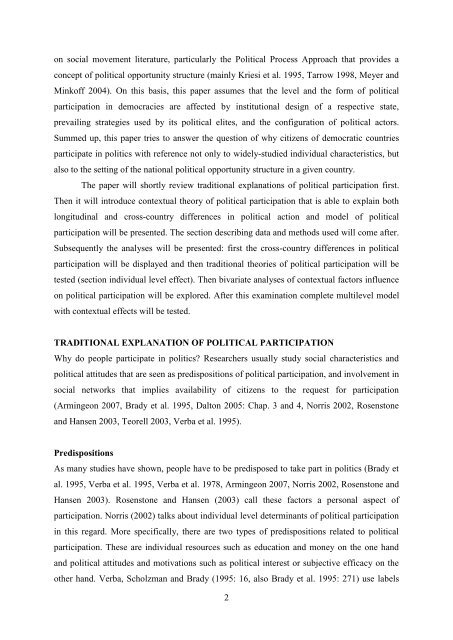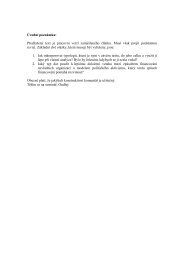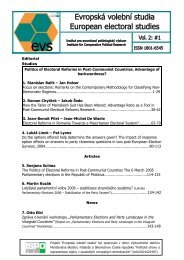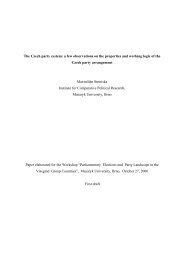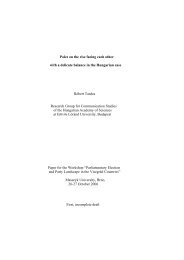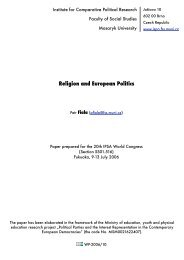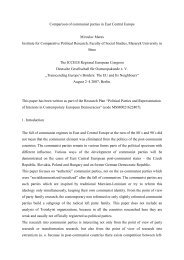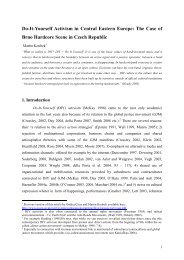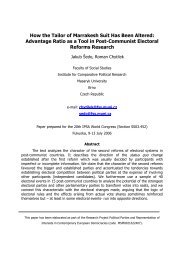CONTEXTUAL DETERMINANTS OF POLITICAL PARTICIPATION
CONTEXTUAL DETERMINANTS OF POLITICAL PARTICIPATION
CONTEXTUAL DETERMINANTS OF POLITICAL PARTICIPATION
You also want an ePaper? Increase the reach of your titles
YUMPU automatically turns print PDFs into web optimized ePapers that Google loves.
on social movement literature, particularly the Political Process Approach that provides aconcept of political opportunity structure (mainly Kriesi et al. 1995, Tarrow 1998, Meyer andMinkoff 2004). On this basis, this paper assumes that the level and the form of politicalparticipation in democracies are affected by institutional design of a respective state,prevailing strategies used by its political elites, and the configuration of political actors.Summed up, this paper tries to answer the question of why citizens of democratic countriesparticipate in politics with reference not only to widely-studied individual characteristics, butalso to the setting of the national political opportunity structure in a given country.The paper will shortly review traditional explanations of political participation first.Then it will introduce contextual theory of political participation that is able to explain bothlongitudinal and cross-country differences in political action and model of politicalparticipation will be presented. The section describing data and methods used will come after.Subsequently the analyses will be presented: first the cross-country differences in politicalparticipation will be displayed and then traditional theories of political participation will betested (section individual level effect). Then bivariate analyses of contextual factors influenceon political participation will be explored. After this examination complete multilevel modelwith contextual effects will be tested.TRADITIONAL EXPLANATION <strong>OF</strong> <strong>POLITICAL</strong> <strong>PARTICIPATION</strong>Why do people participate in politics? Researchers usually study social characteristics andpolitical attitudes that are seen as predispositions of political participation, and involvement insocial networks that implies availability of citizens to the request for participation(Armingeon 2007, Brady et al. 1995, Dalton 2005: Chap. 3 and 4, Norris 2002, Rosenstoneand Hansen 2003, Teorell 2003, Verba et al. 1995).PredispositionsAs many studies have shown, people have to be predisposed to take part in politics (Brady etal. 1995, Verba et al. 1995, Verba et al. 1978, Armingeon 2007, Norris 2002, Rosenstone andHansen 2003). Rosenstone and Hansen (2003) call these factors a personal aspect ofparticipation. Norris (2002) talks about individual level determinants of political participationin this regard. More specifically, there are two types of predispositions related to politicalparticipation. These are individual resources such as education and money on the one handand political attitudes and motivations such as political interest or subjective efficacy on theother hand. Verba, Scholzman and Brady (1995: 16, also Brady et al. 1995: 271) use labels2


